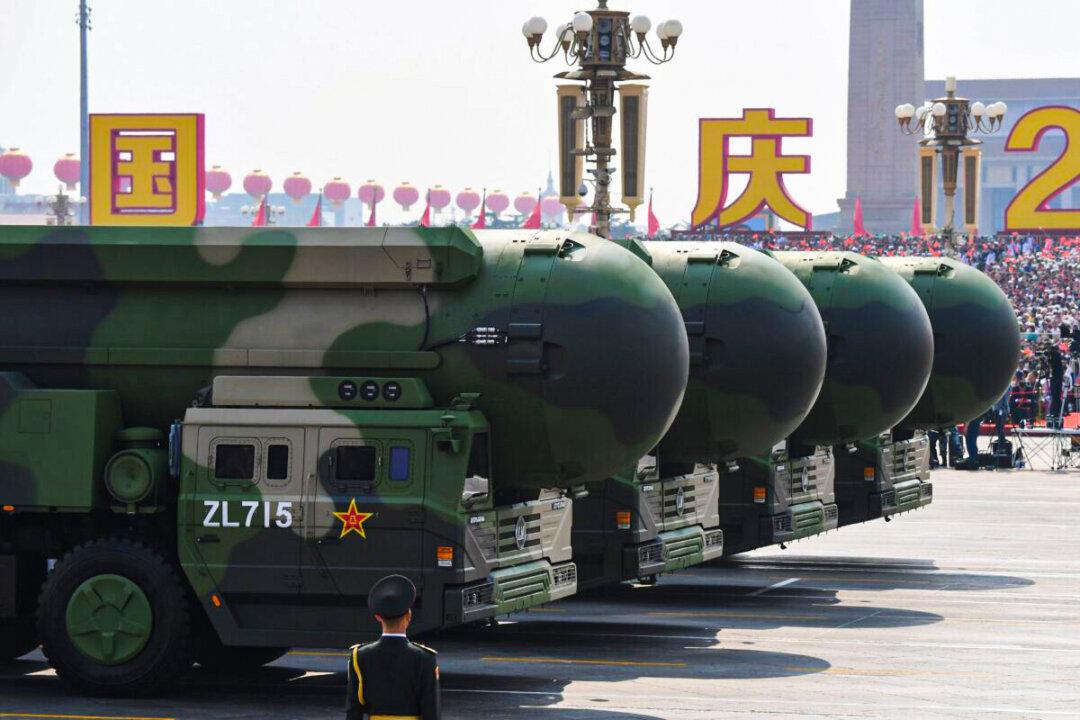China’s communist leadership is uninterested in reducing the risk posed by nuclear weapons, according to senior U.S. officials.
The Chinese Communist Party (CCP) continues to refuse to engage in nuclear nonproliferation and strategic stability talks, despite an announcement last year that the regime would cooperate with the United States on the issue, according to Deputy Assistant Secretary of State Alexandra Bell.




